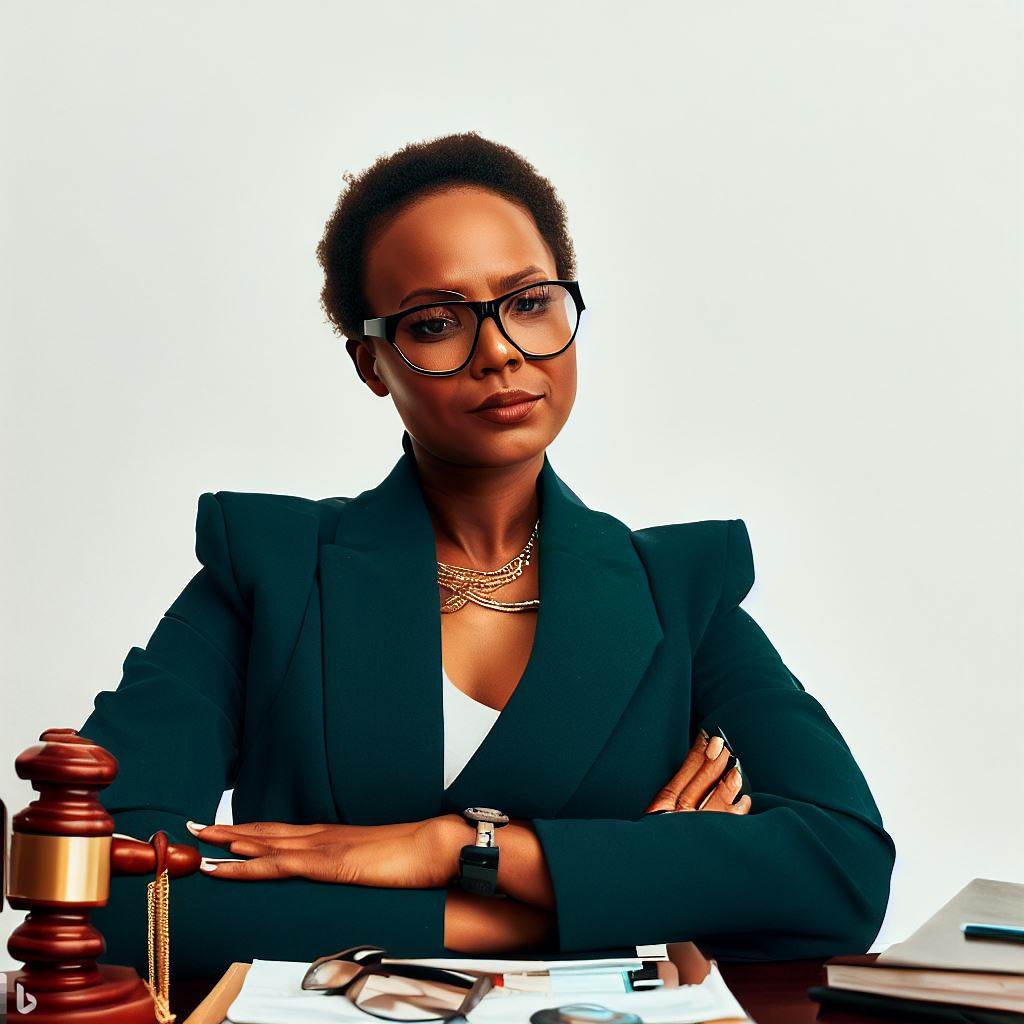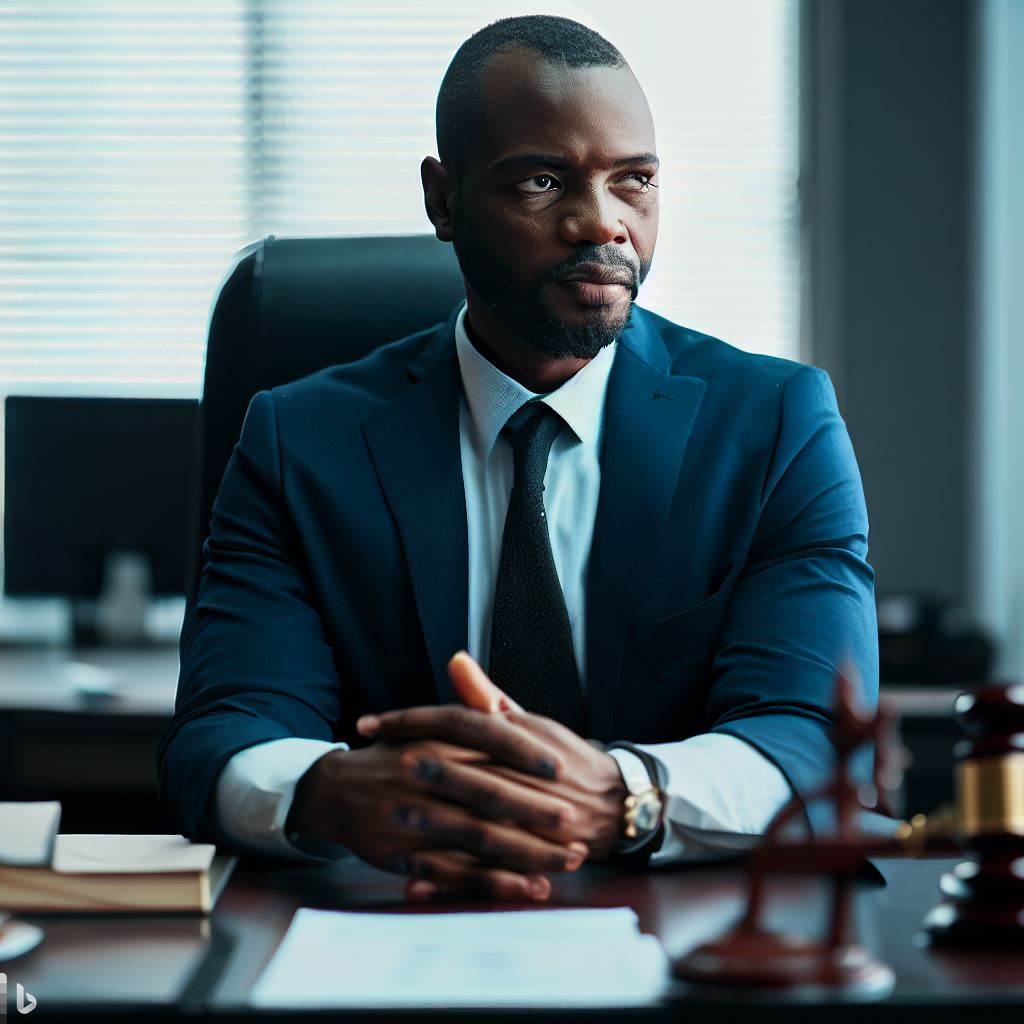Introduction
Legal Rights in the Entertainment Industry” is a vital aspect for safeguarding the creative works in Nigeria’s thriving entertainment sector.
Noteworthy recent cases in the industry, such as the Burna Boy plagiarism scandal and the ongoing dispute between Wizkid and Duncan Mighty, underscore the importance of these legal rights.
Nigeria’s entertainment industry, often referred to as Nollywood, stands as one of the world’s largest film industries, consistently churning out an extensive array of movies, music, and various forms of creative content.
In this blog post, we will delve into the subject of Legal Rights in the Entertainment Industry in Nigeria.
We will explore the available legal mechanisms that protect the rights of creatives and discuss how copyright protection plays a pivotal role in preserving their invaluable works.
Brief overview of Nigeria’s entertainment industry
Nigeria’s entertainment industry has witnessed a surge in copyright infringement cases, causing concerns among creatives.
The Burna Boy plagiarism scandal, where he allegedly copied a music video concept without giving credit to the original creator, sparked widespread outrage.
Similarly, the ongoing feud between Wizkid and Duncan Mighty centers around accusations of copyright infringement.
Nigeria’s entertainment industry, also known as Nollywood, is a thriving sector contributing significantly to the country’s economy.
It encompasses various elements such as filmmaking, music production, photography, and literature.
With the rise of digital platforms, creatives now have more opportunities to showcase their talent and reach a broader audience.
However, the lack of adequate legal protection for creatives remains a significant challenge.
Copyright laws and enforcement mechanisms are not robust enough to effectively tackle copyright infringement cases.
These limitations leave creators vulnerable to exploitation and hinder the growth of Nigeria’s entertainment industry.
In this blog post, we will delve into the legal rights available to protect creatives in Nigeria’s entertainment industry.
We will discuss the significance of copyright protection and explore the existing laws and regulations that safeguard the rights of creators.
Additionally, we will highlight the importance of raising awareness and promoting a culture of respect for intellectual property rights within the industry.
By understanding and advocating for these legal rights, we can create a more secure and supportive environment for creatives in Nigeria’s entertainment industry.
Together, we can foster a thriving and innovative industry that rewards and protects the talents and creativity of all individuals involved.
Copyright Law in Nigeria
Explanation of copyright and its importance for creatives
Copyright is a legal right that grants protection to original creative works.
It is crucial for creatives as it safeguards their intellectual property and ensures fair compensation for their efforts.
Overview of the Copyright Act in Nigeria
The Copyright Act is the primary legislation governing copyright protection in Nigeria.
It provides a framework for the legal rights and obligations of creators and users of copyrighted materials.
Read: The Evolution and History of Legal Professions in Nigeria
Key provisions of the Copyright Act and their implications for creatives
- Definition of copyrightable works: The Act outlines various works eligible for copyright protection, such as literary, artistic, musical, and cinematographic works.
- Duration of copyright protection: Copyright typically lasts for the life of the author plus 70 years after their death, ensuring long-term benefits for creatives and their heirs.
- Moral rights: Creators have the right to claim authorship and protect the integrity of their works, preventing any modification or distortion that could harm their reputation.
- Exclusive rights granted to copyright owners: The Act grants creators exclusive rights to reproduce, distribute, display, and adapt their works, allowing them to control and profit from their creative endeavors.
Challenges and limitations faced by creatives in enforcing their copyright
- Insufficient awareness of copyright among creatives and the general public leads to widespread infringement and undervaluation of creative works.
- Inadequate enforcement mechanisms result in difficulties in detecting and stopping copyright violations.
- Inefficient legal processes and delays in court proceedings hamper effective resolution of copyright infringement cases.
- The high cost of litigation makes it challenging for many creatives to pursue legal remedies against copyright infringement.
- Inadequate understanding of intellectual property rights and the legal system further impedes creatives from asserting their rights.
Basically, copyright law in Nigeria plays a crucial role in protecting the rights of creatives and promoting a sustainable entertainment industry.
Understanding the key provisions of the Copyright Act and the challenges faced by creatives is essential for both creators and the society at large.
By ensuring proper enforcement and raising awareness about copyright, Nigeria can foster a climate that respects and rewards the creative endeavors of its talented individuals.
Read: Top Entertainment Law Firms in Nigeria: A Comprehensive Review
Trade Mark Protection for Creatives
Introduction to trademarks and their significance for the entertainment industry
- Trademarks are distinctive signs used to identify products or services in the marketplace.
- In the entertainment industry, trademarks play a crucial role in establishing brand identity.
- They help creatives protect their unique names, logos, slogans, and other branding elements.
- A strong trademark can enhance the commercial value of creative works.
- It creates consumer recognition, trust, and loyalty towards a particular creative or entertainment brand.
- Trademark protection ensures that creatives have exclusive rights to use their distinctive marks.
- This prevents others from misleading consumers or capitalizing on their reputation.
- Trademark infringement can cause substantial financial and reputational harm to creatives.
Trademark registration process in Nigeria
- Trademark registration in Nigeria is governed by the Trade Marks Act and managed by the Nigerian Trademarks, Patents, and Designs Registry.
- The process begins with a formal application, including details of the mark and its intended use.
- An official search is conducted to ensure the uniqueness and availability of the trademark.
- Upon acceptance, the trademark is published in the Trademarks Journal for potential opposition.
- If no opposition arises within the specified period, the mark is registered, and a certificate of registration is issued.
- Trademark registration in Nigeria is valid for an initial period of seven years, renewable indefinitely every 14 years.
Benefits of registering a trademark for creatives
- Trademark registration provides legal protection against unauthorized use of the mark.
- It gives creatives the exclusive right to use and license their trademarks for profit.
- Registered trademarks can be valuable assets that can be sold, franchised, or used as collateral for loans.
- Having a registered trademark strengthens creatives’ position in legal disputes and enforcement actions.
- Trademark registration helps establish a strong brand presence and reputation in the marketplace.
- It deters others from using similar marks, reducing the risk of confusion among consumers.
Case studies of successful trademark infringement cases in Nigeria’s entertainment industry
In 2016, Nigerian musician Wizkid successfully sued a beverage company for using his image on their products without permission.
The court ruled in favor of Wizkid, recognizing his right to protect his image as a valuable trademark.
In another case, popular Nigerian filmmaker Tunde Kelani took legal action against a production company for using a similar logo.
Kelani’s registered trademark helped him secure a favorable settlement and prevent further unauthorized use.
These cases demonstrate the importance of trademark registration in safeguarding creatives’ rights and interests.
Without proper protection, creatives may face infringement challenges, loss of revenue, and damage to their brand.
In essence, trademark protection plays a vital role in safeguarding the rights and interests of creatives in Nigeria’s entertainment industry.
Registering trademarks provides legal certainty, exclusive rights, and valuable commercial advantages.
Through successful registration and enforcement, creatives can establish and maintain their unique brand identity, preventing unauthorized use and avoiding potential financial and reputational harm.
The case studies mentioned highlight the significance of proactive trademark protection, enabling creatives to defend their rights and thrive in the competitive entertainment landscape.
Read: Specializing as an Attorney in Nigeria: A Close Look

Explore Further: The Role and Responsibilities of Paralegals in Nigeria
You Might Also Like: How Technology is Changing the Law Profession in Nigeria
Contractual Agreements for Creatives
Importance of contracts in protecting creatives’ rights
Contracts serve as crucial legal instruments in safeguarding the rights and interests of creatives in Nigeria’s entertainment industry.
They provide a solid foundation for ensuring fair compensation, protecting intellectual property, and avoiding potential disputes.
Common types of contracts in the entertainment industry
Common types of contracts in the entertainment industry include:
- Recording Contracts: These contracts outline the terms between an artist or band and a record label. They typically cover issues like album production, distribution, royalties, and the duration of the contract.
- Licensing Agreements: Licensing agreements involve granting permission to use intellectual property, such as music, in various media.
This can include allowing a film or television show to use a song, or permitting a product to feature an artist’s likeness. - Performance Contracts: Performance contracts are agreements made between performers and event organizers.
These contracts specify the terms of a live performance, including compensation, venue requirements, technical specifications, and the duration of the performance.
Key clauses to include in contracts to safeguard creatives’ interests
- Clear Definitions: Contracts should provide precise definitions of roles, responsibilities, and expectations. Clarity helps prevent confusion and conflicts.
- Intellectual Property Rights: Explicitly state ownership and usage rights for intellectual property like music, lyrics, or artwork. This safeguards creatives from unauthorized exploitation.
- Compensation Terms: Contracts should outline payment structures, ensuring creatives receive fair remuneration, including royalties, advances, or performance fees, based on agreed-upon terms.
- Termination and Breach: Specify conditions under which either party can terminate the contract or seek legal remedies if obligations are not met, protecting creatives.
- Exclusivity: Contracts can include provisions for exclusivity, ensuring creatives aren’t restricted from working with others without consent or compensation.
- Usage and Distribution Rights: Define how, where, and for what purposes creative works can be used or distributed, preventing unauthorized use.
- Dispute Resolution: Include clauses for alternative dispute resolution like mediation or arbitration, facilitating efficient conflict resolution and reducing legal battles.
- Representation and Management Agreements: Address the appointment of agents or managers, specifying roles, responsibilities, and compensation terms when needed.
- Performance Obligations: Outline performance requirements, including rehearsals, show times, and specific needs for successful performances.
- Confidentiality: Contracts can incorporate confidentiality clauses to protect sensitive information, preventing disclosure to unauthorized individuals or entities.
By incorporating these essential clauses, creatives can secure their rights, protect their work, and establish a solid legal framework within Nigeria’s entertainment industry.
Contracts serve as vital tools for empowerment, ensuring fair treatment and providing a solid foundation for successful creative careers.
Read: Salary and Compensation: Nigerian Attorneys Explained
Discover More: Decoding the Nigerian Paralegal Profession: A Beginner’s Guide
Anti-Piracy Measures
Overview of piracy and its impact on the entertainment industry
Piracy, a scourge in Nigeria’s entertainment sector, robs artists of their hard-earned income. It thrives on illicit copying and distribution, undermining creativity.
Piracy harms the economy by depriving creators and producers of revenue. This financial loss stunts growth and discourages innovation.
Existing anti-piracy laws in Nigeria
Nigeria has robust legislation against piracy, including the Copyright Act and the Nigerian Copyright Commission (NCC). These laws provide a legal framework to combat piracy.
Copyright Act (1988) grants creators exclusive rights to their works, enabling legal action against pirates.
Strategies and initiatives to combat piracy in Nigeria
- Public awareness campaigns: Educational initiatives educate the public on the detrimental effects of piracy. These campaigns highlight piracy’s consequences for the entertainment industry.
- Collaboration with law enforcement agencies: Partnerships between the NCC and law enforcement agencies strengthen anti-piracy efforts. Joint operations target pirate networks, leading to arrests and convictions.
Success stories in reducing piracy and protecting creatives’ works
Nollywood, Nigeria’s film industry, saw a decline in piracy when the NCC intensified enforcement. This led to increased revenue for filmmakers.
Music artists also benefited from anti-piracy measures. Streaming services and legal downloads became more prevalent, bolstering earnings.
In a nutshell, Nigeria’s entertainment industry battles piracy with stringent laws, public awareness campaigns, and collaborations with law enforcement.
These efforts have yielded success stories, providing hope for a future where creatives’ rights are respected.
Read: Changes in the Attorney Profession: Nigeria’s Scenario
Conclusion
This blog post highlighted the importance of protecting the rights of creatives in Nigeria’s entertainment industry.
The entertainment industry in Nigeria is growing rapidly, and with this growth comes the need for increased protection of creatives.
It is crucial for creatives to be proactive and vigilant in safeguarding their legal rights.
They should take necessary steps to protect their intellectual property, such as copyrighting their works and signing contracts.
This blog post aimed to raise awareness about the legal rights of creatives in Nigeria and emphasize the significance of protecting these rights.
Increased protection will not only benefit individual creatives but also contribute to the overall growth and development of the entertainment industry in Nigeria.
To support the call for increased protection, it is important for stakeholders, including the government, industry associations, and legal professionals, to work together in creating and enforcing robust copyright laws and regulations.
The future of Nigeria’s entertainment industry relies on the preservation of creativity and the recognition and respect for the legal rights of its creatives.
Let us all join hands in safeguarding this industry and ensuring a prosperous future for all.




